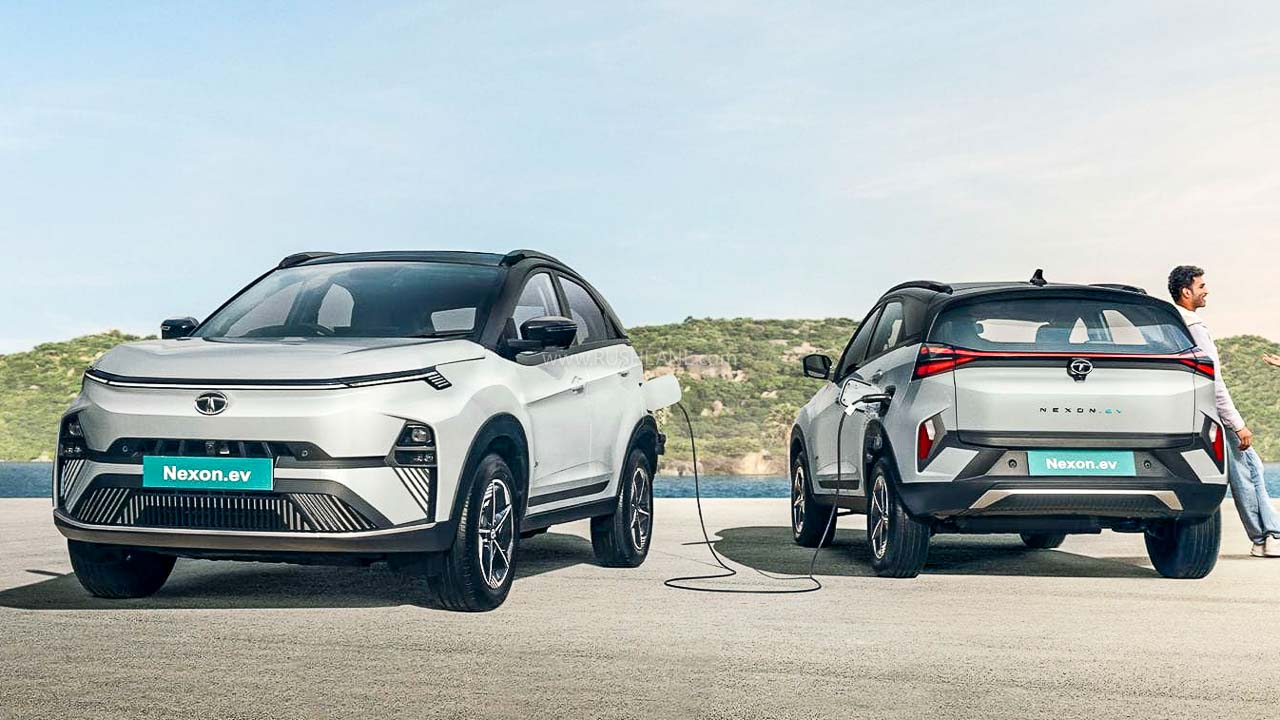
Tata Motors has announced a price reduction for Nexon EV as well as Tiago EV – Passes on battery price reduction benefits to customers
In a major move to make electric vehicles (EVs) more accessible to Indian customers, Tata Passenger Electric Mobility Ltd (TPEM), a subsidiary of Tata Motors and a pioneer in India’s EV revolution, has announced substantial price cuts for two of their best-selling electric models, the Nexon EV and Tiago EV. These new prices are valid on new purchase, and not for existing owners.
Tata Nexon EV New Prices, Tiago EV New Prices – Feb 2024
Nexon EV is set to receive a price reduction of up to Rs. 1.2 lakh, making it even more appealing to potential buyers. Similarly, the Tiago EV will see a significant price drop of up to Rs. 70,000, with the base model now starting at an attractive Rs. 7.99 lakh. This news comes after Mahindra reduced prices of their XUV400 electric and MG Motor reduced prices of their Comet EV and ZS EV.
Mr. Vivek Srivatsa, Chief Commercial Officer at TPEM, highlighted the rationale behind the price reduction, stating, “Battery costs constitute a substantial part of the overall cost of an EV. With battery cell prices having softened in the recent past and considering their potential reduction in the foreseeable future, we have chosen to proactively pass on the resulting benefits directly to customers.”
The reduction in prices is expected to further propel the growth of the EV market in India, where TPEM already holds a dominant position with over 70% market share. Notably, the inaugural prices of the recently launched Punch EV will remain unchanged, as they already incorporate a reduction in battery prices anticipated in the coming years.
EV Market Surge: TPEM Commands Over 70% Market Share
EVs have shown remarkable growth momentum in recent years, substantially outperforming the overall passenger vehicle industry. In CY2023, the EV segment witnessed an impressive 90% growth, in stark contrast to the 8% growth recorded by the traditional passenger vehicle industry. This growth momentum has continued into CY2024, with EV sales registering an outstanding 100% year-on-year growth in January 2024.
Mr. Srivatsa emphasized the company’s commitment to accelerating the mainstream adoption of EVs by making them more accessible nationwide. “While EVs have grown rapidly over the last few years, our mission is to accelerate the mainstream adoption of EVs by making them more accessible nationwide. Our portfolio already offers a wide choice of body styles, range, and price points for our smart, feature-rich EVs,” he added.
With these significant price reductions, Tata Motors aims to attract a larger pool of customers to the EV market. The Nexon EV and Tiago EV, already popular choices among consumers, are expected to become even more compelling propositions at their new, accessible price points.
Germany Reports Decline In EV Sales
Elsewhere, electric vehicle sales are reportedly slowing down. Germany witnessed a substantial 55% decline in electric vehicle (EV) sales in January 2024, shedding light on upheavals within the broader automotive sector. In line with global trends, Germany had previously offered tax incentives for citizens purchasing electric vehicles. However, the government abruptly terminated the incentive program in December 2023, leading to a significant downturn in EV sales.
In comparison to December 2023, the sales of new electric vehicles witnessed a sharp decline of 54.9%, while plug-in hybrid sales were down by 19.6% in the initial month of 2024. Conversely, the market for vehicles powered by internal combustion engines experienced a positive trajectory, with gas vehicles increasing by 9.1% and diesel vehicles by 9.5%.
Despite the modest rebound in internal combustion engine vehicle sales, it failed to counterbalance the overall contraction of the automotive market, which contracted by 11.7% compared to December 2023, as reported by Auto Business Insight. While the sudden termination of tax incentives undoubtedly exacerbated the decline in EV sales, it is not the sole factor contributing to the overall decrease.

